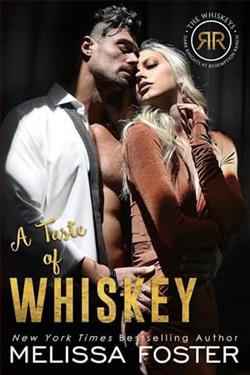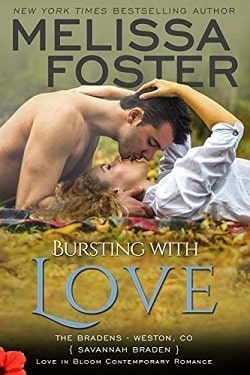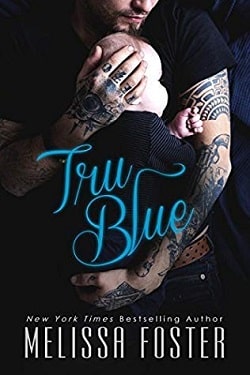Page 51 of Tender Feud
Katrine felt her fingers tightening into fists. She could understand Raith’s bitterness over the fate of the Highlanders at the hands of the English after the Forty-five. But he wasn’t the only one who had grieved over the destruction, over the loss of friends and loved ones. “No, I don’t believe the past can be forgotten,” she replied shakily. “My father died at Culloden, and I shall never forget that. But neither do I let the past rule my life.”
“Ah, Culloden.” Raith let his head fall back against the chair, closing his eyes. “The day Scotland was brought to her knees…the pride of her manhood mowed down by the English cannon like grain before a scythe. But we MacLeans gave a good account of ourselves, by God.”
“You were there?” Katrine stared at him. “But you couldn’t have been more than a boy.”
A mirthless smile spread across his lips. “I was seventeen, old enough to wield a claymore.” He fell silent, his expression growing distant, as if he were lost in memory. His voice, when he spoke, sounded far away.
“It was MacLean of Drimnin who led us into battle against the English. But we had no chance against their superior artillery. Such a great victory it was for the Sassenachs over the exhausted, starving Highlanders. A grand triumph for the Butcher Cumberland afterward. He took no prisoners except for the few he wanted to save for public execution, ‘to set an example,’ he said. The slaughter beggared all description…the butchery of unarmed, defenseless, wounded men. He hunted down the survivors and burned them alive in their huts—those he didn’t torture before shooting. Then the real atrocities began…the burning and raping and killing of the innocent.”
Katrine sat unmoving as he spoke, her mind’s eye picturing in vivid detail the events Raith described—the clashing clans, the sickening, senseless massacre after the battle, the brutal pillage later. She watched Raith, unable to look away, the pain etched in his features drawing out all the tender, comforting instincts she possessed. He had known so much death, so much hatred. He had been molded by the past, by the hellfires of Culloden and all the other tragedies that had beset the Highlands, the lost causes and violent retributions. A moment before she had wondered what kind of man he was, but she knew that just now, in this quiet room, she was seeing the true man…driven, lonely, proud…bitter.
He gave a heavy sigh. “The rising was futile, first and last. But what true Highlander could have refused to take up arms for Bonnie Prince Charles…fat, drunken lecher that he is now.”
Raith had forgotten her presence, Katrine knew, or he would never have spoken so about the disenfranchised prince the Scots had wanted to put on the throne of Britain. Charles Edward Stuart had eventually become a profligate whose imperious temper and drunken debauchery had alienated his friends and crushed the hopes of his followers. She hadn’t known Raith could see it. But he could and did, she realized. Yet he was true to the House of Stuart, even now. He would be loyal because his life, his clan’s existence, were founded on loyalty.
He must have felt her watching him then, for he opened his eyes, fixing her with his harsh blue gaze. “Ah, yes, Culloden was a sight to see. The Judas Campbells slaughtering their own countrymen.” Raith paused, before adding with pointed emphasis, “You said your father was one of their numbers.”
Katrine stared at Raith with dawning horror; he could have fought her own father.
“Yes, mine could have been the blade that took your father’s life,” Raith said dispassionately. “Does that fash you, bonny Katie?”
But his hadn’t been the blade, Katrine thought with a sense of desperate relief. All the reports of her father’s death had credited a Murray man with striking the fatal blow that had ended James Campbell’s life. Even so, the jarring reminder that the MacLeans and the Campbells had fought on opposite sides had again brought home to her just how wide the gulf was between her and Raith. That remembrance brought Katrine no relief, only pain.
She looked away, knowing the misery she felt was reflected in her eyes.
“What, you don’t care to think about it? You’d like to forget that, too, wouldn’t you, Miss Campbell?” He gave her name a hateful twist, and though his tone was low, so as not to waken the sleeping child in his arms, the very air vibrated with the echo of past emotions, with the memory of the longstanding, bitter feud between their two clans.
Katrine made no reply. Wearily she let her head fall forward, resting her forehead on her knees. They wouldn’t settle this tonight or any night. For in truth, Raith’s hatred toward the English and the Campbells ran too deeply ever to be tempered. He despised everything she was, everything she came from.
With a feeling of helpless despair, Katrine closed her eyes. For there was another truth she could no longer avoid facing.
She was falling in love with this hard, bitter man. This Highland laird who was her blood enemy.
Chapter Eleven
Katrine spent the remainder of the night tossing and turning on her pallet, hoping her wits had simply deserted her and that she would discover them in the morning. No doubt the strain of being kept prisoner for nearly three weeks had affected her reasoning, her perspective, her very mind.
But by light of day, even without the forceful presence of her Highland captor to reckon with, without his dark blue gaze smoldering at her so fiercely, her predicament was still the same. She was in love with Raith MacLean.
It was daft, it was terrifying, it was wonderful. She had found the man who could match her spirit and fire her blood. And she had no earthly notion what to do about it.
Katrine lay in bed long after the sun rose, her head buried under the covers, the memory of those blue eyes burning into her. Her cowardice, when she considered
it, nearly made her squirm. She was afraid to face Raith. She was actually afraid—she who had always been able to hold her own with any man. But she couldn’t contemplate encountering him in the glen or coming across him by chance somewhere in the house, not until she had her feelings under better control, not until she at least could expect herself to respond to him with equanimity, without saying or doing something foolish.
Eventually, though, Katrine dragged herself out of bed to wash and dress, the urge to check on Meggie overcoming her desire to avoid Raith. The child was still sleeping, but by midmorning, after the lingering effects of the laudanum had worn off, Meggie was showing the remarkable resilience that children sometimes possessed. Her usual somberness was perhaps a bit more pronounced, but she seemed to have recovered from her tormented nightmares.
Even so, Katrine made a determined effort to keep the drawing lesson entertaining and cheerful. She was surprised and puzzled when the upstairs chambermaid interrupted the lesson to deliver a message.
“The laird wants ye to bring the lass to the stables,” the girl said with a disdainful sniff, her contemptuous glance making it very clear she didn’t approve of a Campbell being trusted with the MacLean’s ward.
Katrine scarcely noticed, however, for her pulse had begun an erratic hammering in her veins at the thought of having to face Raith. She straightened the ribbon in Meggie’s hair and nervously smoothed her own errant curls that were trying to escape from the coil at her nape, then took Meggie’s hand and made her way downstairs to the stable yard.
But it wasn’t Raith who was waiting for them, she discovered. Rather it was Lachlan.
“Ye’re to come wi’ me,” the red-haired Highlander told Katrine gruffly, though not unkindly.
“But why?” Katrine asked, puzzled.















